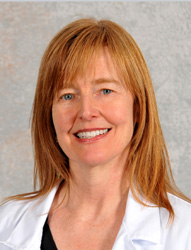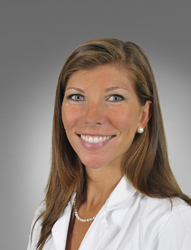By: DANIEL LAMPHIER, M.D.
When you hear “high blood pressure” and “diabetes,” do you think of health problems your parents or grandparents may have? Unfortunately, a growing number of young adults are dealing with these dangerous conditions. In fact, Millennials (born 1981-1996) are now being diagnosed with high blood pressure and diabetes at greater rates than any other age group.
What’s the cause of this unhealthy trend? Mostly, it’s lifestyle: Millennials eat a lot of processed and fast foods with high levels of calories, sugar, salt and fat. And they tend to be less active, preferring screen time to physical activity. As a result, about 70% of young adults are overweight or obese.
The bad news
Being overweight is a major risk factor for many chronic health issues, especially high blood pressure and type 2 diabetes. Left untreated, these two diseases can have life-long, devastating effects on your health.
High blood pressure (or hypertension) occurs when the force of circulating blood against the walls of arteries is too high. People with high blood pressure are 3.6 times more likely to get type 2 diabetes, 3.5 times more likely to have narrowed or blocked arteries, and five times more likely to suffer a stroke or heart failure. It’s called “the silent killer” because it often has no symptoms and most people don’t know they have it. The only way to detect it is to get your blood pressure checked by a health professional.
Type 2 diabetes results when your body can’t properly manage sugar, resulting in too much sugar circulating in your bloodstream. Diabetes greatly increases your risk of heart attack and stroke, kidney and eye disease, poor circulation and nerve damage. There’s no cure for diabetes but it can be managed through diet and medicine.
The good news
By making some basic lifestyle changes, you can greatly lower your risk for getting high blood pressure and type 2 diabetes, or successfully manage the diseases if you already have them. In fact, some patients are able to improve their condition to the point that they no longer need to take medicine. Here are eight health strategies that apply to both high blood pressure and diabetes.
1. Eat healthy. No surprise here: a healthy diet can lower both high blood pressure and diabetes.
- Consume fewer processed foods and fast foods that are high in salt and fat.
- Avoid sweet snacks, desserts and sugary drinks such as sodas, fruit juices and fancy coffees.
- Get plenty of vegetables, fruits and whole grains.
- Choose nonfat dairy and lean meats, such as skinless chicken and fish.
- Carbohydrates turn into sugar, so if you’re diabetic watch your carb intake.
- No foods are strictly off-limits but focus on eating only as much as your body needs.
2. Reduce salt (sodium) in your diet. There is a strong link between sodium and high blood pressure, so reducing your salt intake is key.
- Read food labels. Look for low-sodium versions of foods and beverages.
- Eat fewer processed foods like canned soups, lunch meats and boxed meals. Only a small amount of sodium occurs naturally in foods. Most sodium is added during processing.
- Don’t add salt. Use herbs or spices to add flavor to food.
3. Exercise. Regular physical activity helps bring down your blood sugar and reduce your blood pressure. Plus, it can help you lose extra pounds. You don’t have to join a gym — just walk fast or ride a bike. Aim for 30 minutes of activity that makes you sweat and breathe a little harder on most days of the week.
4. Lose weight. The bad effects of blood pressure and diabetes often climb as your weight increases, so weight loss is one of the best ways to prevent/control them. Losing even a few pounds can help.
5. Manage stress. When you’re stressed, both your blood sugar level and blood pressure go up. Find ways to relieve stress — through deep breathing, yoga, walking or relaxing hobbies.
6. Quit smoking. Diabetes makes you more likely to have health problems like heart disease, eye disease, stroke, kidney disease, blood vessel disease, nerve damage and foot problems. If you smoke, your chance of getting these problems is even higher. Talk with your doctor about ways to quit.
7. Limit your alcohol. Alcohol can make your blood sugar go too high or too low, and it can also raise your blood pressure. Women should have no more than one drink a day and men should have no more than two.
8. Monitor your blood pressure and get regular checkups. Home monitoring can help you track your blood pressure. Your MPCP provider can also evaluate your health situation and help you make a lifestyle plan you can live with.
Dr. Daniel Lamphier is a Maryland Primary Care Physicians, LLC partner and is certified by the American Board of Family Medicine. He earned his medical degree from George Washington University, School of Medicine & Health Sciences, and cares for patients in the Queenstown office.







